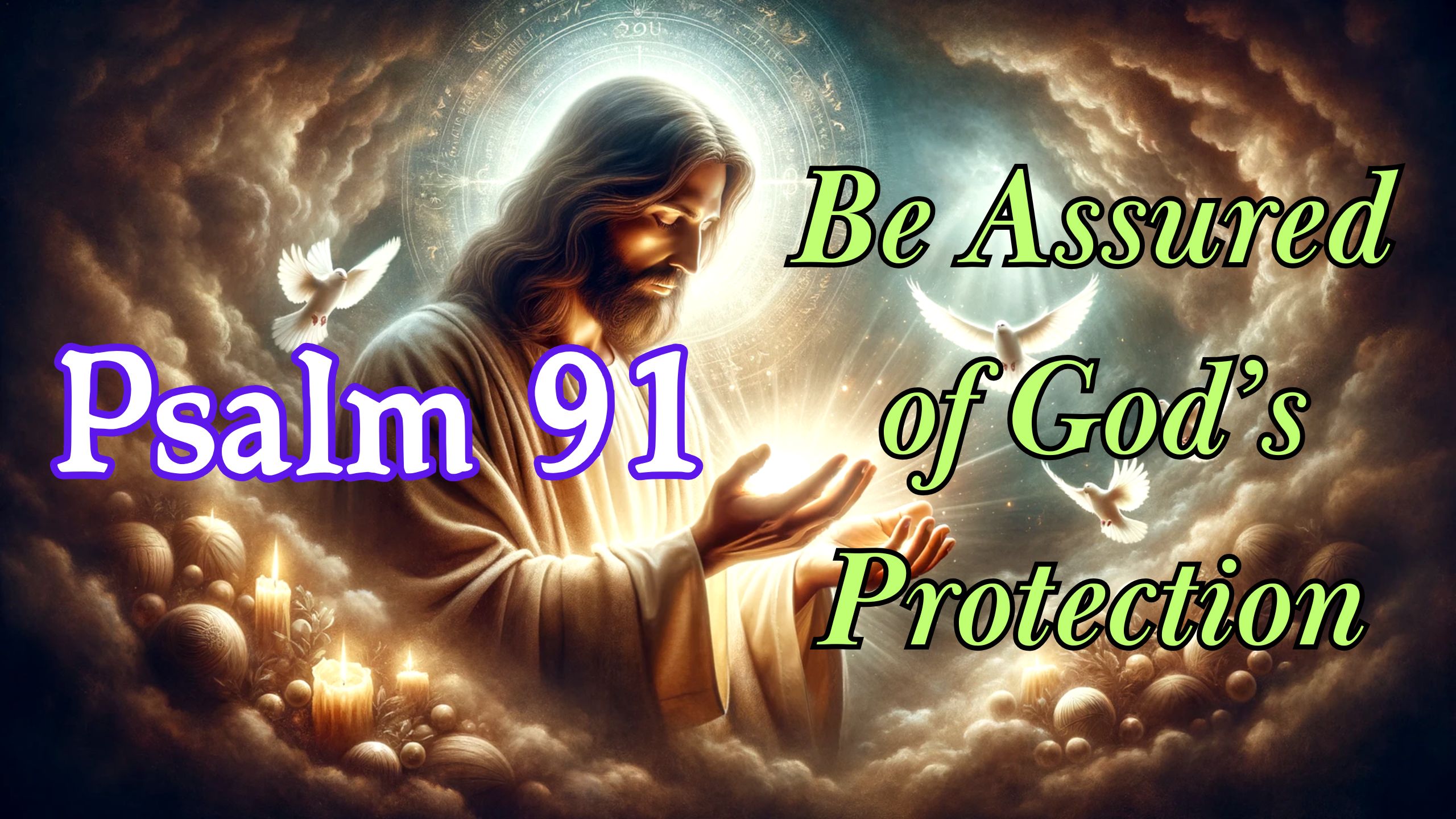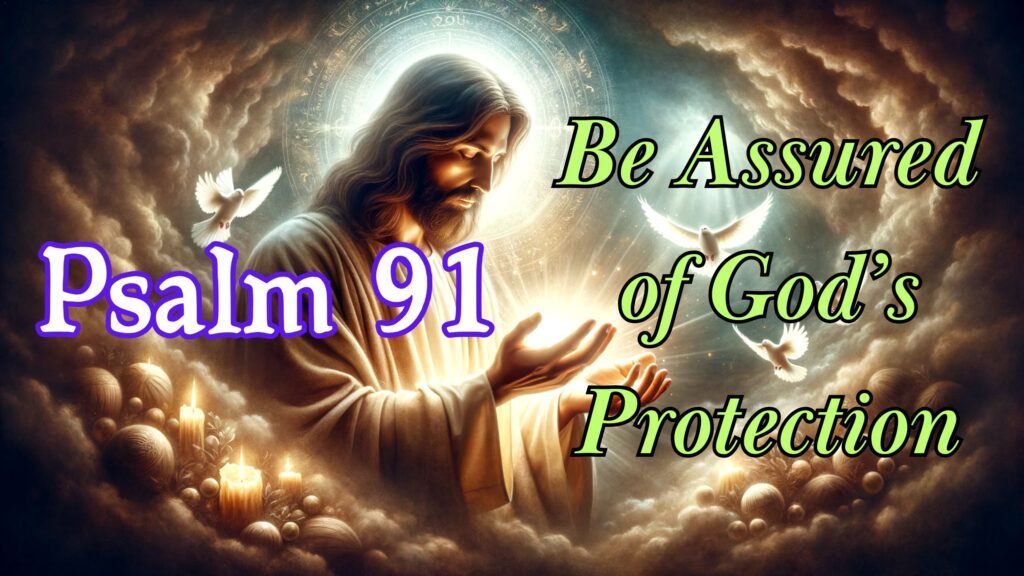Create A Daily Prayer Routine
Psalm 91: Its Meaning Explained In Detail

Psalm 91 is one of the most cherished passages in the Bible, often called the “Psalm of Protection.” It’s a poetic declaration of God’s sheltering presence, offering comfort and assurance to those who trust in Him. The psalm doesn’t have an author explicitly named, though some traditions attribute it to Moses or David.
Regardless of who wrote it, its timeless message resonates deeply, speaking to the human need for safety and peace in a world that can feel unpredictable and threatening.
Psalm 91, A Closer Look At Its Meaning
Psalm 91 has 16 versus. And the various versus express different things. Let’s take a look:
Here’s a brief outline of the Psalm:
- Verses 1-2: A declaration of trust in God as a refuge and fortress. Verses 1-2: “He who dwells in the shelter of the Most High, who abides in the shadow of the Almighty, will say to the LORD, “My refuge and my fortress; my God, in whom I trust.”
- Verses 3-8: Describes various forms of protection from dangers. Versus 3-8: “For he will deliver you from the snare of the fowler and from the deadly pestilence; he will cover you with his pinions, and under his wings you will find refuge; his faithfulness is a shield and buckler. You will not fear the terror of the night, nor the arrow that flies by day, nor the pestilence that stalks in darkness, nor the destruction that wastes at noonday. A thousand may fall at your side, ten thousand at your right hand; but it will not come near you. You will only look with your eyes and see the recompense of the wicked.”
- Verses 9-13: Promises that because one has made the Lord their dwelling, no harm will overtake them, and they will tread on the lion and the viper. Verses 9-13: “Because you have made the LORD your refuge, the Most High your habitation, no evil shall befall you, no scourge come near your tent. For he will give his angels charge of you to guard you in all your ways. On their hands they will bear you up, lest you dash your foot against a stone. You will tread on the lion and the adder, the young lion and the serpent you will trample under foot.”
- Verses 14-16: God actually speaks here, as you can possibly tell from how the narration changes, promising deliverance, protection, honor, long life, and salvation to those who love Him and acknowledge His name. Verses 14-16: “Because he cleaves to me in love, I will deliver him; I will protect him, because he knows my name. When he calls to me, I will answer him; I will be with him in trouble, I will rescue him and honor him. With long life I will satisfy him, and show him my salvation.”
Psalm 91 Opening Verses
The psalm opens with a powerful image: “He who dwells in the shelter of the Most High will rest in the shadow of the Almighty.” This sets the tone for the entire chapter—a vivid picture of intimacy with God as a refuge. The “Most High” and “Almighty” aren’t just titles; they point to a God who is above all and capable of all, a protector who invites us to stay close. The idea of dwelling suggests more than a quick visit—it’s about living continually in that safe place, finding rest even when chaos swirls outside.
Continued Reading of Psalm 91
As the psalm unfolds, it lists specific dangers: “the fowler’s snare,” “the deadly pestilence,” “the terror of night,” and “the arrow that flies by day.” These aren’t just poetic flourishes—they reflect real fears people faced then and still do now, whether it’s traps set by enemies, disease, or sudden violence. Yet the promise is striking: “You will not fear.” It’s not that the threats disappear, but that God’s presence changes how we face them. He’s described as a shield, a fortress, even sending angels to guard us so we don’t “strike our foot against a stone.” That’s a tender, almost personal level of care.
One of the most famous lines comes in verse 11: “For he will command his angels concerning you to guard you in all your ways.” This has captured imaginations for centuries, inspiring art, songs, and prayers. It’s a reminder that God’s protection isn’t limited to what we can see—there’s a spiritual dimension at work, unseen forces aligned for our good. But this isn’t a blanket promise for everyone; the psalm ties it to those who “dwell” with God, who “call upon” Him, suggesting a relationship, not just a one-off plea.

Psalm 91, Where God Speaks
The end section, verses 14 to 16, shifts to a voice of assurance, possibly God Himself speaking: “Because he loves me, I will rescue him; I will protect him, for he acknowledges my name.” This is the heart of Psalm 91—protection flows from love and trust. It’s not a transactional deal where we earn safety by being good enough; it’s a response to devotion. God promises to be with us “in trouble,” to deliver and honor us, even to grant “long life” and “salvation.” These aren’t guarantees of a trouble-free existence, but of a sustained presence through whatever comes.
Conclusion
For many, Psalm 91 is a prayer or a meditation in tough times. Soldiers have carried it into battle; families have recited it during illness or loss. Its imagery—wings, feathers, shields—feels both ancient and immediate, bridging the gap between a distant past and our present struggles. Yet it’s not a magic spell. Bad things still happen to faithful people, and the psalm doesn’t deny that. Instead, it reframes suffering: the danger might remain, but fear doesn’t have to rule us.
In the end, Psalm 91 is about where we choose to place our trust. It’s an invitation to see God as our ultimate security, not wealth, power, or even our own strength. The world can be a dark place, but this psalm whispers—and sometimes shouts—that we’re not alone in it. For those who hold it dear, it’s a lifeline, a song of hope that echoes long after the words fade.
On my YouTube Channel I recite Psalm 91 with text and imagery. It can be a beautiful way to recite and pray this psalm, and I hope if you are reading this you will check it out. It can be found here: Let us Pray Psalm 91: Be Assured of God’s Protection With This Prayer.